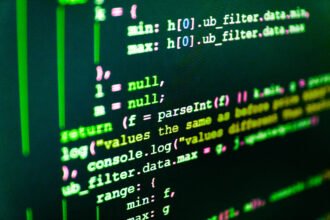Anyway, I like to know what’s going on with my system when I’m away. The system writes out a log of errors, trades, finished processes, etc, and also emails me important events like Trader Workstation shutting down, and executed trades. These go to my Blackberry wherever I am. To send emails from/to a Gmail account…
Anyway, I like to know what’s going on with my system when I’m away. The system writes out a log of errors, trades, finished processes, etc, and also emails me important events like Trader Workstation shutting down, and executed trades. These go to my Blackberry wherever I am. To send emails from/to a Gmail account, which I like to use because it has a lot of storage and can be searched easily, I had to write a little script (code at the bottom) to add to the Python logging library since Gmail uses a special kind of authentication not supported by the standard library.
Here’s how I use it:
import logging
logging.config.fileConfig(“/yourdirectorystructure/
logging.conf“)
logging.debug(‘Live trading online’)
logging.critical(strategy_name+’ ‘+signal+’ ‘+position_size+’ ‘+etf)
What that says is: load Python’s
logging library (which does most of the work for me); then configure it according to my preferences in the file
logging.conf; then as an example send a debug-level message ‘Live trading loop starting’; and then a critical-level message with the strategy name, buy/sell signal, position size, and ETF name. These two messages are taken out of context from one of my strategies, so the variables don’t reference anything here. The first is called when I turn on the system, the second is called whenever a trade is executed.
It looks like this in the inbox:
logging.debug(msg) sends a debug(low)-level message to be logged, in my case it prints to a console window and writes to a file.
logging.critical(msg) sends a critical(high)-level message, which goes to the console and file, and also gets sent to my email address.
It used to be frustrating to wake up in the morning and see that my system had crashed at some unknown point in the night for some unknown reason, but now I know what’s going on, when it’s happening, and why.
Python’s logging library isn’t documented very well, especially the email handler and file configuration, so I thought sharing these two parts would be useful. Here’s my
configuration file, from above (modify it to set the directory where you want to store logs), and the
custom Gmail email handler (modify it for your own username/password). The overall logging system works well and adds the minimum amount of superfluous code.
I’m interested in knowing how others have approached the problem of monitoring and logging.








